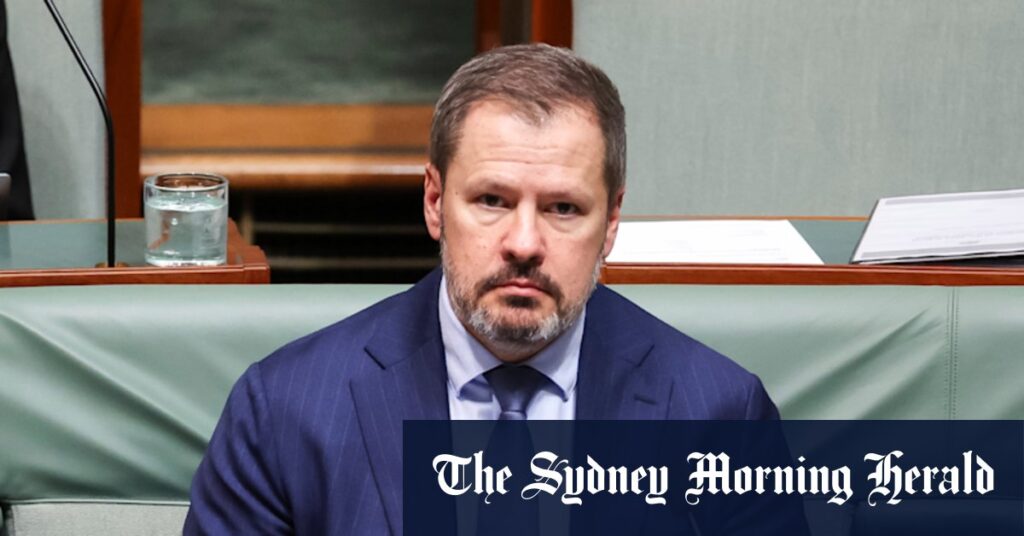
Former Labor minister Ed Husic has voiced concerns about the Australian government’s proposed environmental reform, suggesting it could grant excessive powers that might be misused by future Coalition governments. As Environment Minister Murray Watt prepares to introduce the legislation on Thursday, Husic’s remarks highlight potential pitfalls in expanding national interest powers to approve major projects, potentially bypassing environmental checks.
Husic, who was moved to the backbench after being removed from the industry portfolio by Prime Minister Anthony Albanese in May, shared his apprehensions during an interview on ABC News’s Afternoon Briefing. He warned, “We’re going to give them the power to override environmental laws in what is called the national interest. That’s a really consequential power.”
He illustrated his concerns with a hypothetical scenario involving the AUKUS arrangements necessitating a new uranium mine. “If it doesn’t meet the test, do we say on the basis of strategic national interest, we’ll let the mine go ahead, even if it’s assessed as having unacceptable impact?” he questioned.
Political Reactions and Implications
The announcement comes as former opposition leader Peter Dutton previously indicated in March his intention to use these national interest powers to expedite approval for Woodside’s North West Shelf gas plant in Western Australia. Husic clarified that his concerns are specifically about future Coalition governments, not his Labor colleagues.
Opposition Leader Sussan Ley has criticized the reform, urging Minister Watt to separate the bill, asserting that the opposition would support only “practical measures to streamline approvals.” She warned that the burden of Watt’s new nature protections is excessive.
Minister Watt’s Perspective
Minister Watt is set to deliver a speech marking the introduction of his reforms to parliament, emphasizing the urgency of the new laws to combat Australia’s alarming rate of species extinctions. According to excerpts from his speech, Watt will argue, “Without urgent action and a full reform package, we risk losing our native wildlife and iconic natural places for good.”
Watt aims to pass the legislation with support from either the Coalition or the Greens in the Senate, urging both to prioritize national interests over partisan politics. He accused the Greens of using criticism of his reforms as a “fundraising vehicle to win back the seats they lost,” and criticized the Liberals for advocating a split bill to avoid internal conflict.
Understanding the Proposed Reforms
The proposed reforms introduce a provision for “national interest proposals,” which could allow certain projects, like mines or wind farms deemed strategically important, to bypass environmental assessments. This is an expansion of the existing national interest powers under the Environment Protection Biodiversity Conservation Act, which primarily relate to natural disaster-related actions.
Husic’s warning resonates with concerns from conservation groups. Biodiversity Council chief executive James Trezise expressed apprehension about future environment ministers facing pressure from industries to exploit national interest exemptions. “The government is giving itself sweeping powers to override any protections it might put in place for nature,” he stated.
Balancing Environmental and Economic Interests
While conservation groups acknowledge that the bill could introduce vital new environmental protections, business groups have welcomed the reforms for potentially streamlining project assessments and accelerating development. However, industry stakeholders are wary of several contentious issues, including an “unacceptable impacts” test that could allow the environment minister to veto projects, a mandate to offset all environmental damage with protective investments, and the authority of a new national watchdog to impose fines for breaches.
The move represents a significant step in Australia’s environmental policy landscape, with potential long-term implications for both conservation efforts and economic development. As the debate unfolds, the balance between safeguarding natural resources and facilitating strategic projects remains a focal point of contention.
As the legislation is introduced, stakeholders across the political spectrum and various industries will be closely monitoring its progress and potential impacts. The outcome could redefine the intersection of environmental protection and national development priorities in Australia.






